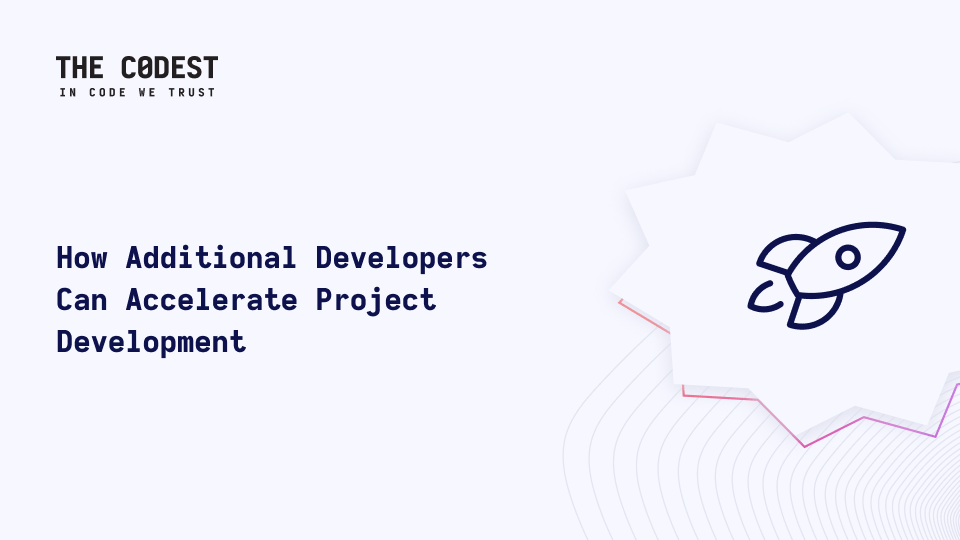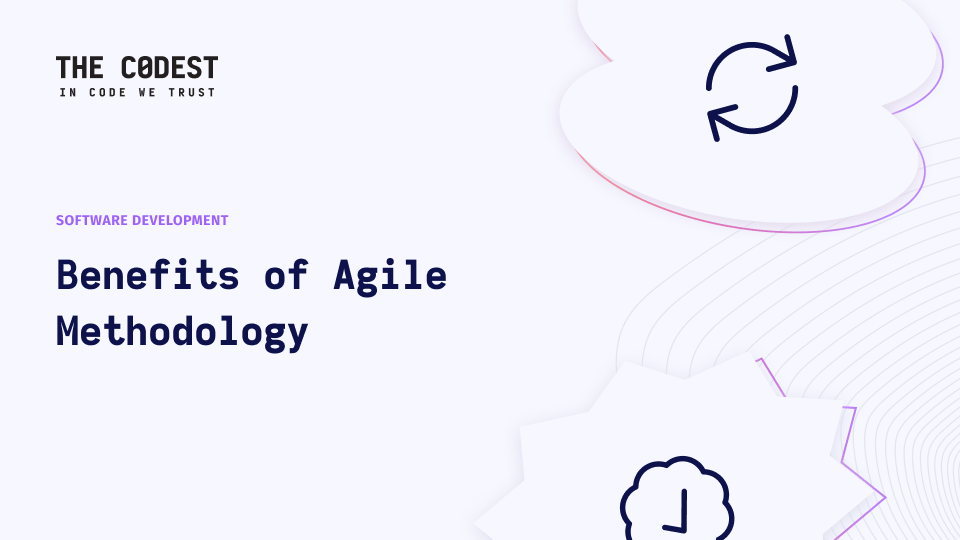Take your fintech software development to the next level with Top Fintech Software Development Comopa. Get the best results with our expert guidance!
Do you find yourself getting lost in a maze of technical jargon when looking for reputable, fintech software development services and companies? Allow me to clear the way and navigate you towards some of the brightest stars in this dynamic field.
Introduction to Fintech Software Development
Hello there! So, you’re curious about fintech software development. It’s an intriguing area indeed, shaping how money moves around the world in unprecedented ways. Just before we delve into it, let’s take a moment to define what exactly I mean by “fintech”. Shortening of the words ‘financial technology’, fintech refers to digital innovations that are altering or replacing traditional, used financial processes, institutions and methods.
Such transformations are stirring up everything from banking services, personal finances, and even personal finance and investment portfolios. Perhaps most appealingly though, they are opening doors for businesses and individuals who would not otherwise be able to engage with these systems. At its crux is software development – building the digital infrastructures that make these innovations possible.
In today’s article, we’ll discuss different types of of fintech apps and software: online & mobile banking, platforms, payment channels & digital wallets; cutting-edge technologies like blockchain; investment & risk management tools and platforms for trading & exchanges among others — all powered using diverse tech stacks by various leading financial service custom software development firms worldwide. We will also consider what makes custom financial app development solutions advantageous over ready-made alternatives.
An exciting journey lies ahead – so buckle up as we embark on this exploration together!
Types of Fintech Software
The fintech sector, driven by innovative technologies, has brought a paradigm shift in the financial industry. It’s rapidly altering the way we invest, save or even transact. Notably, one key factor behind this revolution is fintech financial software development. Let’s delve into some types of Fintech financial software developers that are making waves in the fintech industry now.
Online Banking
Arguably one of the most transformative trends within fintech software development, online and banking software provides users with a virtual platform to manage transactions and monitor finances. This gives birth to convenience previously hard to imagine; you can pay for services, make deposits and check account balances – all without visiting a physical branch! The best fintech companies are pushing boundaries with features like budgeting tools or high-interest savings accounts rolled into their digital banking platforms.
Payments & Digital Wallets
As society moves toward cashless transactions, payment applications and digital wallets have become increasingly popular. These solutions typically offer a simple interface and enable borrowers to transfer funds quickly between different parties. Not just individual users but businesses also benefit largely from these applications given their direct impact on customer experience and operational efficiency for financial companies.
Blockchain
Blockchain technology is another groundbreaking innovation emerging from the realm of artificial intelligence and fintech software development. As a decentralized ledger system built on transparency and security principles, it’s got substantial potential to eliminate intermediaries out of financial transactions (like banks). The applicability goes far beyond cryptocurrencies and includes smart contracts or supply-chain financing.
Investment Management
“Robo-advisors”, an intriguing term coined in the fintech industry; refers to automated investment management programs using algorithms for portfolio optimisation based on user’s risk tolerance and financial goals. Unlike conventional methods involving significant costs and manual intervention sometimes plagued by human biases, Robo advisors provide cost-effective, efficient alternatives that democratise access to investment particularly essential for newcomers.
Trading & Exchanges
With apps enabling anywhere-anytime trading alongside resources sufficing ample market intelligence / analysis material at click-of-a-button distance; equity trading has been democratised vastly facilitated by advancements in fintech software and mobile app development process / web development arena . Indeed , companies like eToro , Robinhood have stormed through garnering popularity amongst millennials due to smart-tech-enabled features facilitating easy understandability paired up by conducive UI/UX design making novice-traders feel comfortable inching towards this complex domain further fuelling mass adoption potential.
It indeed cannot be overstated how integral role does Fintech banking systems and fintech software developers play acting as catalyst boosting efficiency whilst maintaining cost-effectiveness evident through myriad manifestations smoothening people’s life touched upon right above.
As the whole fintech product development landscape continues to evolve, so the software development life cycle and too does the technology behind it. The tech stack – essentially the suite of technologies used to build and run an application or financial ecosystem – is a vital part of any serious fintech product development or software development effort.
Core Programming Languages
At the heart of most fintech development platforms are some core programming languages. According to the 2021 HackerRank Developer Skills Report, these predominantly include:
-
JavaScript: Loved for its versatility and wide-ranging library ecosystem.
-
Python: Popular for its easy-to-read syntax and libraries ideal for data analysis.
-
Java: Credible performance and well-established frameworks make it a staple in corporate environments.
Additionally, emerging languages such as Go or Kotlin are growing in popularity due to their advantageous features like efficiency, robustness, or interoperability.
Server-side Technologies
Server-side technologies serve as invisible forces underpinning financial applications’ functions. These include Node.js for event-driven I/O model or ASP.NET given its seamless integration with other Microsoft technologies.
System databases like MySQL, MongoDB, or PostgreSQL commonly handle storage within best fintech companies’ infrastructures due to their dependability and flexible architectures.
Frontend Frameworks
Quite possibly what end users perceive first when interacting with financial software companies‘ products are interfaces brought alive by frontend frameworks like React.js or Angular. They offer reusability of components leading to improved productivity and overall better user experiences.
Blockchain Technology
For creating protected digital transactions, many choose blockchain tech – a particularly disruptive force within the sector. Ethereum leads here as a preferred choice owing to its smart contract feature which enables automatically executing code once certain conditions have been met.
Cloud Services
Nearly synonymous with modernizing software development today is cloud technology provided by vendors like AWS, Google Cloud Platform (GCP), or Microsoft Azure. Advantages? Improved scalability, enhanced security measures and cost-effectiveness compared to traditional hosting methods.
Therefore, your chosen fintech software development company or partner should demonstrate competence in these areas because they define how reliable the constructed solution will be over time while providing delightful user interactions all around.
The crafting of fintech software solutions isn’t solely based on the technology stack and the genius of development teams. It is equally important to set up a robust, reliable, and resilient infrastructure that can support these sophisticated financial operations. The scalable nature of Fintech software makes it imperative to have an infrastructure that fulfills its bandwidth requirements without compromising the security of transactions.
In this context, let’s delve into the backbone elements integral to any fintech software solution – Cloud Services, APIs (Application Programming Interfaces), Microservices architecture, and Big Data integration and analytics:
-
Cloud Services: In recent times, cloud computing has emerged as a game changer for businesses across all sectors – including finance. According to Gartner Research, by 2025 three-fourths of financial firms will run their operations primarily or entirely using cloud services. The seamless scalability, cost efficiency and increased accessibility make it indispensable for modern fintech solutions.
-
APIs: Application Programming Interfaces (APIs) are critical in enabling interoperability between different systems or components in a Fintech environment. They facilitate communication between various tools or applications, ensuring smooth data transitions – pivotal in offering efficient financial services
-
Microservices Architecture: Cutting-edge Fintech companies often rely on Microservices Architecture – a design technique that breaks down your application into multiple independent tasks executed concurrently. As Accenture Report states, adopting such an architecture can lead to faster delivery cycles and improved scalability potential – giving more room for growth.
-
Big Data Analytics Infrastructure: With massive amounts of transactional data generated every second in the Financial sector, setting up an infrastructure capable of real-time big data analysis becomes essential for many Fintech platforms today.
The importance of robust infrastructure gains gravity considering how technologically intense various financial institutions and operations have become in recent years – A strong foundation yields top-notch performance! Keep this mind when choosing your next fintech or software development company or partner.
Advantages of Custom Financial Software Development Services
Choosing the best fintech company to create custom software brings a slew of benefits. Let’s delve into these advantages.
Long-term Partner for Digital Transformation
Engaging with a top financial software developer or company isn’t just about developing an initial application or platform; it’s about establishing a long-lasting business relationship. This dedicated partner supports not only your immediate goals but also guides you through sustained digital transformation. With their experience in developing bespoke financial solutions alone, they can help foresee and plan for future trends and tech disruptions.
Security and Regulatory Compliance
In any financial system, security of sensitive data is paramount. The slightest breach in data encryption could lead to invaluable loss. Hence, specialized fintech engineers prioritize secure code development and practices to guard financial data against cyber threats. Furthermore, these engineers are well-versed in regulatory compliance obligations within different geographies; they ensure that the developed solution adheres strictly to rules set by financial entities such as SEC, FINRA, GDPR amongst others.
Dedicated Fintech Engineers
Speaking of expertise, another reward of working with professional fintech software development companies is having access to specialized skill sets. These committed software engineers all possess deep knowledge in developing safe, efficient, and robust fintech solutions for software developers, the latest technologies tailored specifically for the complex landscape of the finance industry.
Product UI/UX Design
While backend functionalities are critical in FinTech applications, frontend aspects like user interface (UI) and user experience (UX) shouldn’t be overlooked too. Top-tier financial software development companies prioritize creating sleek designs along with seamless experiences that engage users while simplifying usage process––a balance between aesthetics and functionality.
DevOps
DevOps practices unify development (Dev) team activities and operations (Ops), resulting in swift high-quality deliveries alongside frequent feature updates which keep your product fresh for end-users. It transforms the software cycle from a linear development process to a flexible one where builds can be repeated multiple times if needed – an approach leading firms appreciably capitalize on.
Quality Assurance
This seemingly tedious yet vital practice guarantees product perfection pre-launch—no bug stands untouched! Software companies integrate manual testing measures coupled with automation tools to detect anomalies or performance issues early on thus providing glitch-free final products.
Data Science
By integrating data science and machine learning tools within FinTech solutions, valuable patterns/anomalies become clear enabling strategic decision-making base on insights rather than guesses; proficient Financial services custom software developers tap into this perk offering data-driven applications enriched by machine learning algorithms.
Agile Approach
Finally yet importantly is leveraging agile methodologies. They encourage collaboration across teams which leads to consistent development tasks and feedback channels ensuring customer-centric output throughout stages via frequent adjustments; primary reason why all top-performing fintechs insist on it.
By focusing on these inherent benefits that come with specialized partnerships not only do you receive custom-tailored solutions precisely addressing unique business needs but you also gain competitive edge essential in thriving amidst today’s dynamic tech era — A win-win indeed!
Engagement Models for Fintech Software Development
When seeking fintech software development consulting services out, considering the engagement model is paramount. This pivotal decision not only affects how your project unfolds but also its final outcome. Amongst various models, two approaches stand strong in their effectiveness – the dedicated data management development team model and the product and development team model.
Dedicated Team Model
Under the dedicated development team model, you collaborate with a complete lineup of professionals exclusively committed to your project. These experts range from developers business analysts project managers to designers and Quality Assurance specialists, all coordinated under a project manager.
Understandable Costs: With a set monthly fee covering the entire team’s endeavor, you gain clear visibility over expenditures.
Better Control: The direct involvement in team setup provides you more control over your fintech software development.
Flexibility: As your best fintech company collaborates closely with you, there’s room for adjusting timelines or even changing requirements.
Knowledge Base Access: Partnering with an established company allows access to the know-how accumulated through years of immersive experience.
However, remember that this approach requires a hands-on management style which might demand more resources and attention on your business strategy behalf.
Product Development Model
Alternatively, opting for the product development model offers both strategic guidance and implementation expertise from seasoned service providers in financial software companies.
Here are some notable benefits:
End-to-End Execution: Renowned firms own your fintech product lifecycle right from inception till product launch ensuring no gaps in understanding or miscommunication.
Expert Consultation: Leveraging deep-rooted domain knowledge from top financial services custom software development firms can offer valuable insights into market trends and customer needs.
Shared Risk : In this partnership-based approach, risk is shared equally between you and the development firm thereby reducing pressure on individual stakeholders.
Quality Assurance : Being handled by one coherent team ensures well-coordinated quality checks at every phase avoiding last minute surprises.
The golden rule here though is that this strategy works best when partnering with highly knowledgeable players who have a proven track record in successful integrations.
In conclusion, choose between these two primary customer engagement models by factoring in aspects like project complexity, required flexibility and level of control desired versus capacity to manage more active involvement.
Top Financial Services Custom Software Development Firms
As we have uncovered the essentials of fintech software development companies, it’s time to introduce you to some of the most sought-after firms in this niche. These are companies that not only possess deep technical expertise lending fintech software development company, but also have an impeccable reputation for creating game-changing financial applications.
The Codest
The Codest, a top-tier international tech software firm, excels in fintech software development with a specific focus on digital transformation. Their unique strength lies in their highly skilled and experienced software engineers who drive the company’s innovative solutions. With a high seniority level of tech talents, they adeptly navigate complex challenges, ranging from building sophisticated trading platforms to streamlined digital wallet applications.
At the heart of The Codest’s operation is their unwavering commitment to quality. They consistently exceed client expectations, delivering bespoke solutions tailored to individual business needs, securing trust and fostering long-lasting relationships.

iTechArt Group
iTechArt Group is a top-tier name in fintech software development, with an expansive portfolio showcasing excellence in diverse areas – from online and in mobile banking apps and solutions to groundbreaking digital wallet apps. The company’s commitment to staying ahead of the technology curve enables them to understand and address intricate business needs efficiently.
Praxent
Next on our list is Praxent – a titan of fintech developers known for its bespoke financial systems and lending software that enhance efficiency and deliver unparalleled user experiences. Their seasoned team of developers leverage their vast experience to cater to specific client requirements, thereby making them one of the best ever fintech software developer companies around.
Yalantis
Yalantis deserves mention for nothing less than their passion towards technological innovation. They create forward-thinking applications that beautifully blend aesthetic appeal with flawless functionality; something their long list of satisfied clients can vouch for.
Saritasa
When discussing reliable, financial data and software companies, it’s impossible not to mention Saritasa. Their reputed proficiency lies in delivering custom solutions tailored precisely according to customer demands and the unique demands associated with various facets of business analysis within finance industries.
GoodCore Software
GoodCore Software is synonymous with quality and integrity. This UK-based firm has been creating highly secure and technologically advanced, financial and risk management solutions for over 15 years now –their consistency being a testament to their status as industry leaders.
Woodridge Software
As far as agility goes among these best of fintech app developers and cloud app development front companies, Woodridge Software leads by example. Their combination of strategic problem-solving abilities with solid execution has made them indispensable for businesses seeking top-of-the-line fintech software and mobile app development front partners.
Let me now present other standout contributors….
CSHARK
CSHARK earns its place among elite players due to its comprehensive approach which combines innovative design thinking methodology with robust DevOps practices.
SPEEDNET
SPEEDNET specialises in providing efficient trading platforms alongside artificial intelligence and other varieties of transformative technical and data science solutions. It upholds uncompromised standards catering consistently successful delivery records across multiple projects.
Conclusion
The strides made by fintech software developers in reshaping the financial landscape is truly remarkable. As the lines between traditional banking and tech-driven finance solutions blur, the importance of adept fintech software development is brought to the forefront. It’s now more crucial than ever for businesses to partner with the best fintech companies to harness these cutting-edge innovations. The future of financial ecosystem lies in a seamless integration of cloud services, blockchain, and advanced algorithms, ensuring security, scalability, and customer-centric experiences. But, beyond the technology, it’s the visionaries – the financial software companies and their teams – that will truly revolutionize how we perceive and interact with our finances. As the digital transformation journey unfolds, making the right choice in terms of a fintech software development company becomes paramount. Such choices will not only dictate the immediate success of a venture but will also shape the trajectory of financial technology for generations to come.



